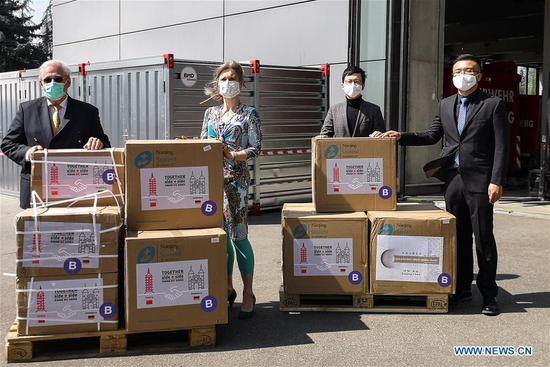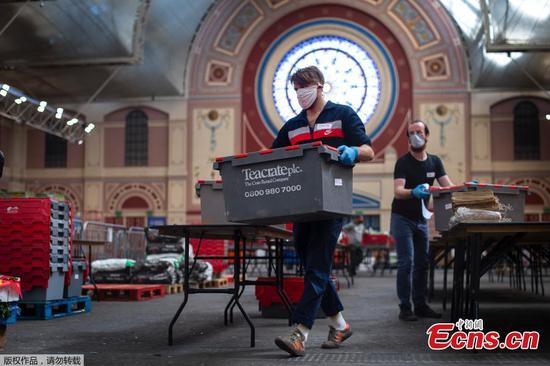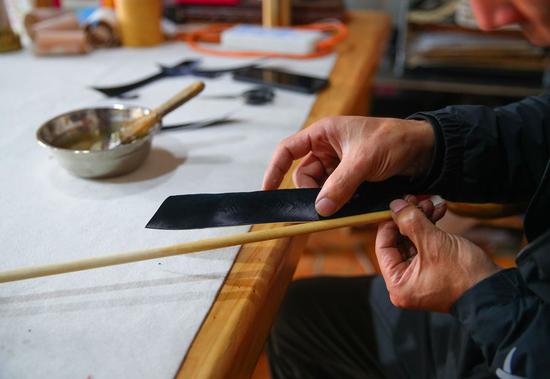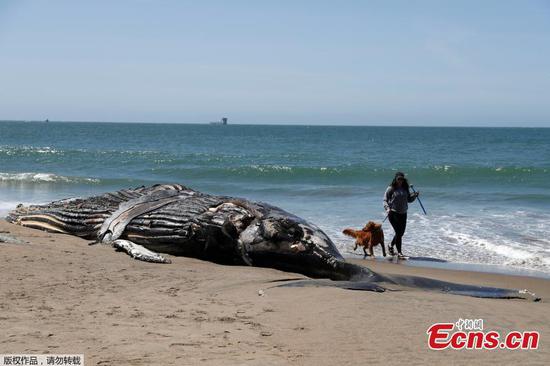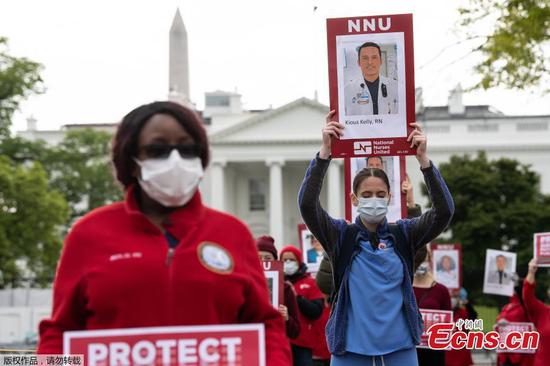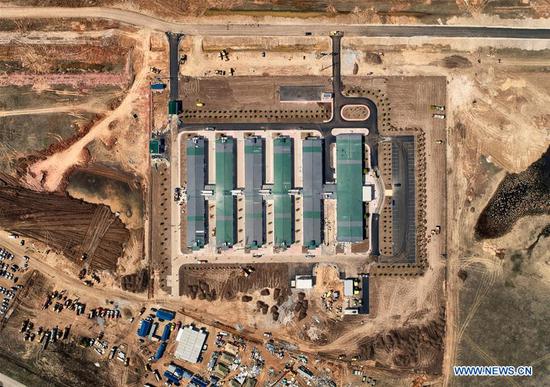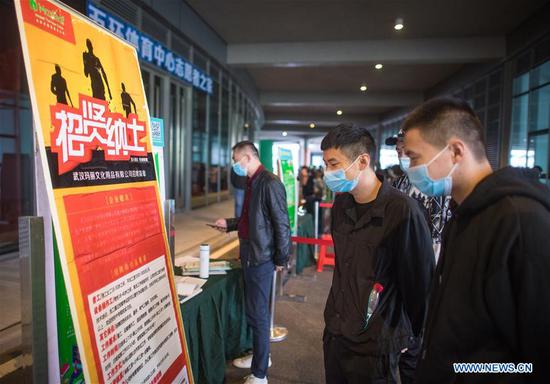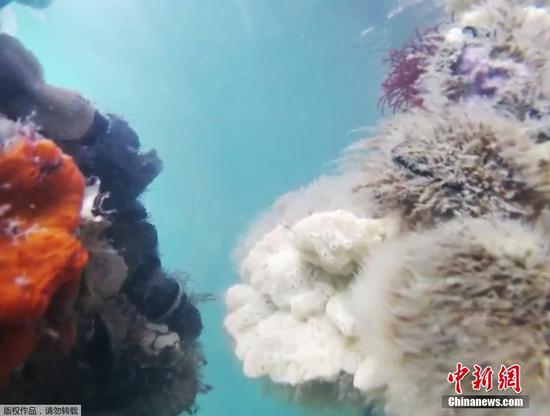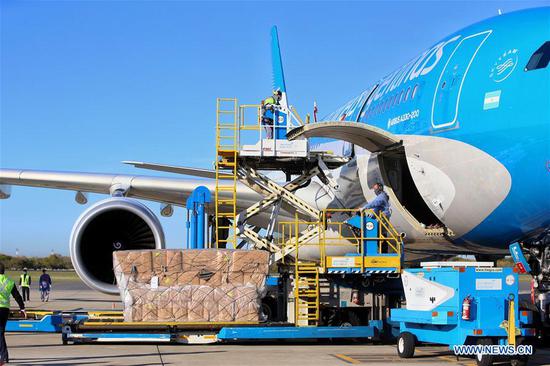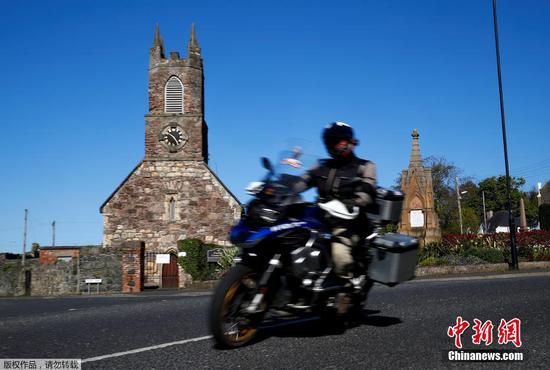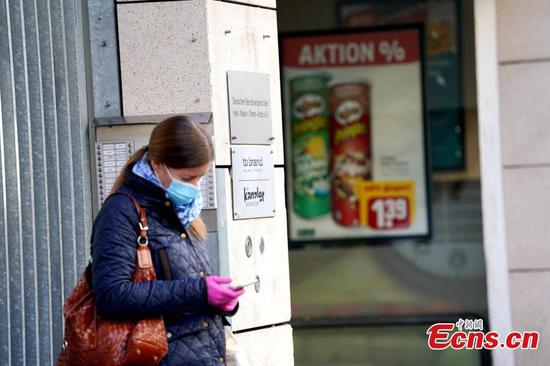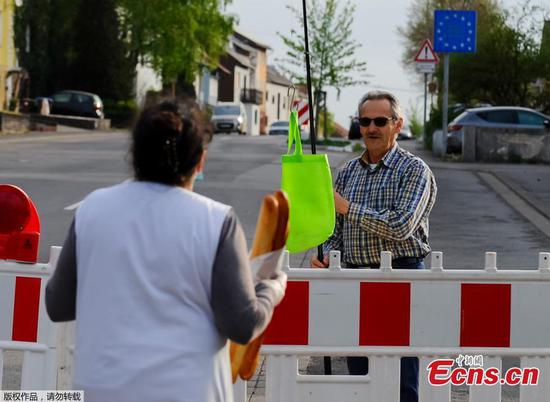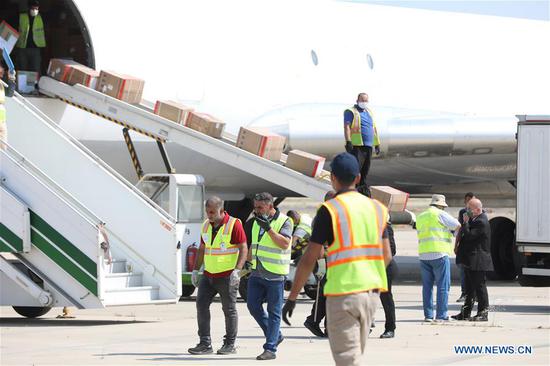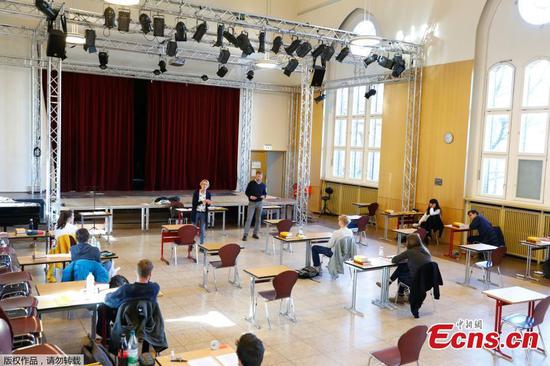Greek authorities said Wednesday that seven new cases of COVID-19 have been reported across the country over the past 24 hours, bringing the total to 2,408 with 121 deaths.
This is the first time the newly confirmed daily caseload in Greece has dropped below 10, after 48 consecutive days of 10-plus cases per day since the outbreak on Feb. 26. It's also the first day that no death has been reported since March 14.
EARLY RESPONSE
Greece has a population of 11 million, of which over 25 percent is over 60 years of age, making it the second-oldest in the EU, only behind Italy.
Due to a decade of austerity demanded in return for rescue loans from international lenders to keep the country afloat, Greece's public health expenses were cut by three quarters. Many doctors went to other countries to find a career. When the epidemic broke out in the country, it had only 560 intensive care beds, which means 5.2 beds per 100,000 people, the lowest in the EU.
Experts and international media pointed out that early response has been one advantage Greece has gained in the fight against the virus.
Greece was an early adopter of "social distancing" strategies. The first case occurred on Feb. 26, when the government canceled all the carnivals nationwide for the coming few days. On March 3, the government implemented the first batch of targeted restrictions. On March 10, the authorities shut down all schools and universities, followed by closure of law courts, theaters, cinemas, culture events venues, clubs and gyms on March 12, when the first death in Greece was announced.
The Greek government appointed Sotiris Tsiodras, a Greek specialist on infectious diseases, as spokesperson for the Greek health ministry for the epidemic in early February, and formed a committee of epidemiologists and doctors to advise on the control of the virus spread.
The government, led by Prime Minister Kyriakos Mitsotakis, announced a national lockdown on March 23, and extended it lately to April 27. Those who violated the measure face a minimum 150 euro fine. On the first day and a half after the lockdown announce, Greek police imposed nearly 800 fines to individuals who violated the measure.
Panagiotis Behrakis, a Greek pulmonologist-intensivist, attributed the country's success in the virus fight largely to the government's early response and intervention with great decisiveness "which was proved life saving."
"(The Greek government) implemented measures of prevention at the right time and this in combination with the very positive acceptance the measures received by the Greek public, leading to the excellent result we have today," Behrakis told Xinhua in an interview on Wednesday.
Most Greeks' obedience to the government advice to remain indoors is also seen as key to Greece's temporary success to contain the virus.
"Greeks have been through crisis; they know what it is. I think that also enabled them to adapt and be stoic," Alex Patelis, economic adviser to the Greek government, told The Guardian in a recent interview, noting that the Greek economic meltdown did indeed play a role in its virus fight.
CHALLENGE REMAINS
Greek authorities announced on Tuesday that more than 150 asylum seekers in a hotel in Peloponnese peninsula in southern Greece have tested positive for COVID-19. A total of 470 asylum seekers, mainly from Africa, were staying at the hotel which is used as a refugee accommodation facility.
Greece now accommodates over 70,000 asylum seekers and more than 38,800 were in overflowing reception centers on five Aegean Sea islands, according to the latest data provided by the government. The country has been burdened with a major refugee and migrant problem since 2015.
Earlier this month, the government immediately quarantined two other refugee facilities near Athens after coronavirus cases were reported there.
Aid agencies have kept calling for more concerted actions at the European level to tackle the migration issue and human rights protection organizations have expressed worries about the over-crowdedness and lack of health sources in the camps on Aegean islands, which may result in "a massive humanitarian crisis."
Greek government spokesperson Stelios Petsas noted during an interview with a local television on Wednesday that the next days are crucial when referring to the recent coronavirus outbreak at the refugee facility. "We are neither optimistic nor pessimistic; we are closely monitoring the situation," Petsas said.
Meanwhile, in an article published by Spiegel and Deutsche Welle, Greece ranks 15th among the European countries where citizens are safer against the coronavirus. The article said that Greece lags behind in terms of two criterion, the availability of hospital beds and the mass of diagnostic tests, although the country has increased its ICU beds from 560 to 900 in a short time.
The Greek health ministry announced on Wednesday that 56,944 tests have been carried out in the country since the outbreak, but some voices from doctors said that more tests are needed to boost confidence of the public.
Some Greek officials also said that the country wants to get rid of being labelled as the "black sheep" of Europe from the debt crisis, by showing a successful containment of the coronavirus.
"What is consoling, however, is that we are no longer a special case. We are not a black sheep," said Mitsotakis in a recent interview with Greek newspaper Kathimerini, adding that Greeks have shown discipline and resilience in this battle.









